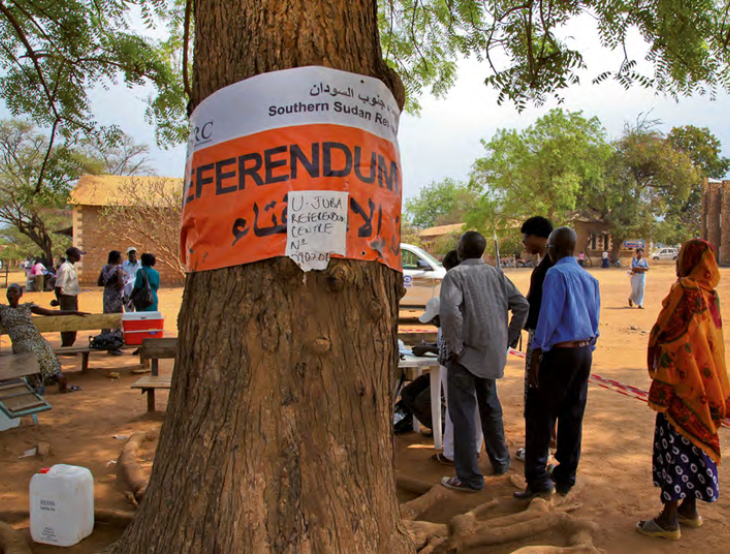DMF in India: why mining affected communities and corporations are absent from governance of extraction
India’s vast and varied mineral resources (coal, iron ore, crude steel, aluminium, limestone) are today a bone of contention. The liberalization of the Indian economy in 1991 transformed the political economy of mining by permitting private capital, domestic and transnational, to enter a sector that was entirely state-owned until then. The sector contributes some $8 billion annually in foreign exchange to India’s reserves, and $850 million to the state treasury. But since most mining in the country is being done illegally (i.e. either without the required licenses or far exceeding the amount of extraction allowed at a site), profits from mining frequently bypass the exchequer. They also fail to benefit local communities, who have suffered serious social and ecological harm due to forced displacement, expropriation and destruction of livelihoods. These impacts in turn led to significant conflict in mining areas, ranging from sporadic confrontations between villagers and mine employees, to larger-scale conflicts between armed groups and security forces around mines. In particular, mining areas that are home to Adivasi - or indigenous - communities of the country, have experienced violent conflict and legal disputes along with protracted struggles for land and forest rights.
The governance of mining impacts – a profoundly political and complex enterprise in India- has proved to be central to the drivers of these conflicts. In 2015, the Indian central government introduced the Mines and Minerals (Development and Regulation) Amendment Bill, which provided for the establishment of District Mineral Foundations (DMFs). DMFs are supposed to be established by Indian states as a vehicle to collect a percentage of mining revenue for the direct benefit of affected communities, and which the district administration is supposed to govern in conjunction with those communities and local stakeholders. DMFs have only recently been implemented in various states; at the same time, many other countries have or will soon implement similar instruments to govern their mining sector.
Given that mining operations are embedded in complex and varied local contexts, this raises the following questions:
- Can companies and communities collaborate in projects of decentralized mining governance that would reduce deepening grievances and the risk of violence, which is detrimental to both sides?
- Have DMFs been able to effectively mediate the company-community relationship or have they reproduced and intensified patterns of regulatory and state capture?
- What role has and could the state play towards this end?
These are some of the questions that the Knowledge Management Fund-funded research, on Conflict prevention and the subnational politics of company-community relationships in the extractives sector, explored. The research was based on intensive field study and systematic data collection at the local level in three mineral-rich Indian states (Odisha, Karnataka and Goa) in 2018-2019.
The report was led by two Indian NGOs, Samata and SETU, in conjunction with the Albert Hirschman Center on Democracy at the Graduate Institute, Geneva. The NGOs are members of the Mines, Minerals and People network (mm&P) - a network of nationwide grassroots organizations, NGOs and social movements that for decades has been at the forefront of the struggle for social and ecological justice for mining affected areas and communities. Samata gave its name to the “Samata vs. State of Andhra Pradesh” Judgment in 1997, in which the Indian Supreme Court for the first time ruled that at least 20% of the profits from mining operations should be set aside for the development of mining affected areas.
The fine-grained study points to the sub-optimal functioning of DMFs, controlled by a nexus of state administration and local politicians that has led to the marginalization of both communities and corporations, which have contributed funds from mining royalties. The findings indicate three trends.
The first: while DMFs are adapted and contextualized to different districts in the states under study, this adaptation often does not meet the basic benchmarks for the form of the DMF set out in law, and frequently works to exclude, rather than include, communities. In particular, Gram Sabhas – existing grassroots village-level governance bodies - are often excluded from the decision-making process, despite being explicitly mentioned in the underlying national law as an important potential participant in DMF governance. Instead, ad hoc governance committees are often convened.
The second: these committees are frequently captured by a mix of local politicians, administrators, and corporate representatives, leaving little space for community voice in the process of developing projects and spending funds – and undermining the value of the DMF as a platform for dialogue and grievance redress. Instead, the money in the DMF may be unspent (only approx. 0.6% of funds have been spent in Goa), captured and poorly or inappropriately spent, or spent with good will towards affected communities but with insufficient input from them.
The third: there is limited accountability for such spending. The funds themselves are infrequently held in an autonomous legal vehicle such as a trust. They are used instead as a direct budget infusion in some places, supporting long-standing state-wide infrastructure or pet projects, rather than being targeted to the affected communities in question.
Taken together, these three findings – weak community participation, political capture, and limited accountability of DMFs, risk entrenching and deepening the distribution of economic, social and environmental harms that give rise to conflict risks around mines.
The research, published in two reports here (with an emphasis on international actors) and here (with an emphasis on national and local policymakers), offers recommendations for members of the security and rule of law community. In particular, it finds that:
- dynamics of sub-national politics are crucial to socially and ecologically sustainable mining governance,
- subnational politics ought to be structured to improve decentralized and participatory mining governance (the reports offer practical suggestions to this end); and
- these structures should be designed to mitigate conflicts by enabling fair benefit-sharing between corporations and communities that have a long-term interest in ecological justice over the generations.
This blog has been made possible with financial support from the Knowledge Management Fund of the Knowledge Platform Security & Rule of Law.


